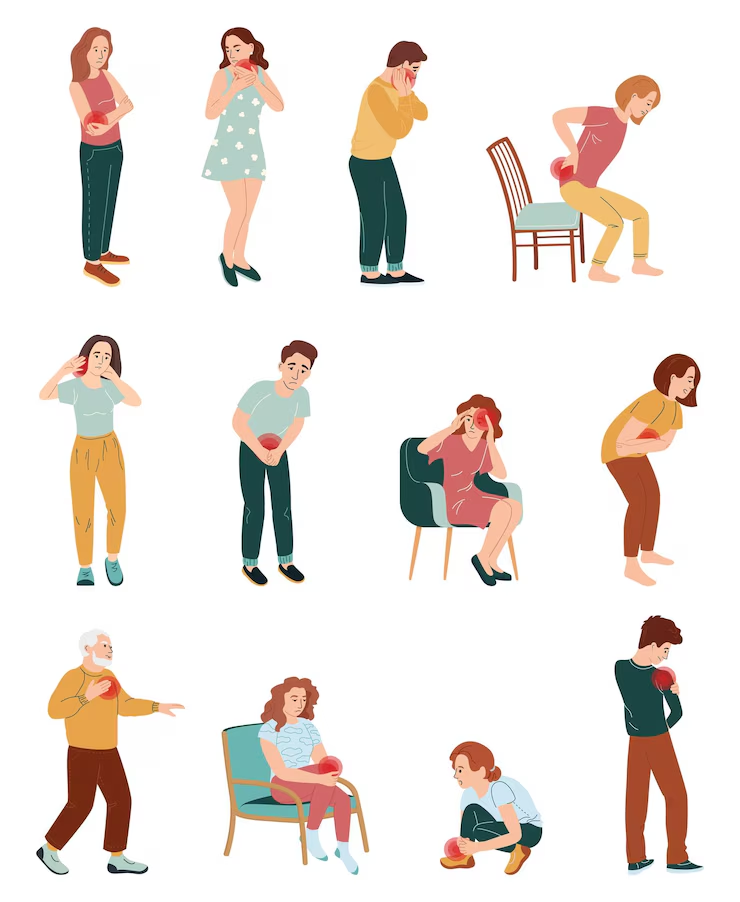Table of contents
In recent years, the spotlight on natural remedies has grown brighter—and at the heart of this wellness revolution is CBD. For those living with persistent, long-term discomfort, CBD for chronic pain offers a hopeful alternative to traditional pain management. But how effective is it? And what should you know before adding CBD to your daily wellness routine?
This comprehensive guide explores how CBD works, scientific insights, potential benefits, and practical tips for managing chronic pain naturally.
What Is Chronic Pain?

Chronic pain is defined as pain that lasts for 12 weeks or longer, even after the original injury or condition has healed. It can stem from a variety of conditions, including:
- Arthritis
- Fibromyalgia
- Neuropathy
- Multiple sclerosis
- Back injuries
- Migraines
Managing chronic pain can be a lifelong challenge. Many people turn to over-the-counter medications, opioids, physical therapy, or even surgery. But these solutions often come with side effects or limitations, leading many to seek out alternatives like CBD for chronic pain.
Understanding How CBD Works for Pain Relief

CBD, or cannabidiol, is a naturally occurring compound found in hemp plants. Unlike THC, CBD doesn’t cause a “high,” but it interacts with the body’s endocannabinoid system (ECS)—a complex cell-signaling network that regulates functions like mood, sleep, immune response, and pain perception.
Here’s how CBD may help with chronic pain:
1. Anti-Inflammatory Properties
CBD is known for its ability to reduce inflammation, which plays a key role in many chronic pain conditions such as arthritis and autoimmune disorders.
2. Pain Signal Modulation
CBD interacts with CB1 and CB2 receptors in the brain and immune system, helping to modulate how pain is experienced and processed.
3. Muscle Relaxation
For people with conditions like fibromyalgia or tension-related pain, CBD can promote muscle relaxation, reducing spasms and tightness.
4. Improved Sleep and Recovery
CBD may indirectly help reduce pain by improving sleep quality and allowing the body to recover more effectively.
Popular CBD Products for Chronic Pain Relief

When it comes to CBD for chronic pain, not all products are created equal. Here are some of the most commonly used options:
• CBD Oil and Tinctures
Fast-acting and easy to dose, these are placed under the tongue for quick absorption.
• CBD Capsules
A convenient way to get consistent dosing, ideal for long-term daily use.
• CBD Topicals
Creams and balms infused with CBD can be applied directly to affected areas for localized relief.
• CBD Patches
Time-release patches offer prolonged relief throughout the day or night.
• CBD Edibles
Gummies and snacks infused with CBD are discreet and long-lasting, though slower to take effect.
Scientific Research on CBD for Chronic Pain
Numerous studies have explored CBD’s potential role in pain management:
- A 2018 review published in Frontiers in Pharmacology found substantial evidence supporting CBD’s efficacy in reducing chronic pain in adults, particularly neuropathic pain and conditions linked to inflammation.
- A 2020 survey by the Arthritis Foundation found that 29% of people with arthritis use CBD to manage their symptoms, with many reporting improvements in pain, sleep, and well-being.
- Clinical trials are ongoing to determine the best formulations and dosing guidelines, but early data is promising.
Tips for Using CBD for Chronic Pain
If you’re considering trying CBD for chronic pain, here are a few helpful guidelines:
- Start with a low dose and increase gradually based on how your body responds.
- Choose full-spectrum CBD for added benefits from cannabinoids and terpenes.
- Consistency is key—CBD works best when taken regularly.
- Check third-party lab reports to ensure product purity and potency.
- Talk to your doctor, especially if you’re on other medications or have underlying health conditions.
5 Frequently Asked Questions About CBD for Chronic Pain
It depends on the product. Oils and tinctures may work within 20–40 minutes, while edibles can take 1–2 hours. Topicals may provide relief within 30 minutes of application.
Yes, CBD is generally considered safe, non-addictive, and well-tolerated. However, it’s always best to consult with a healthcare provider before starting long-term use.
Possibly, but it’s essential to speak with your doctor to avoid interactions, especially with medications that affect liver enzymes.
There is no one-size-fits-all answer. Many users start with 10–20mg per day and adjust based on pain levels and body response.
No. CBD is non-psychoactive and won’t get you high. Some users report feeling relaxed or mildly sleepy, especially in higher doses.
Final Thoughts
Chronic pain can take a heavy toll on your body and mind, but relief may be closer than you think. Whether you’re looking to reduce inflammation, improve sleep, or ease everyday aches, CBD for chronic pain presents a natural and promising alternative.
As with any supplement or therapy, quality matters. Choose reputable brands, start slow, and listen to your body. With time and consistency, CBD could help you reclaim comfort and improve your overall quality of life.





